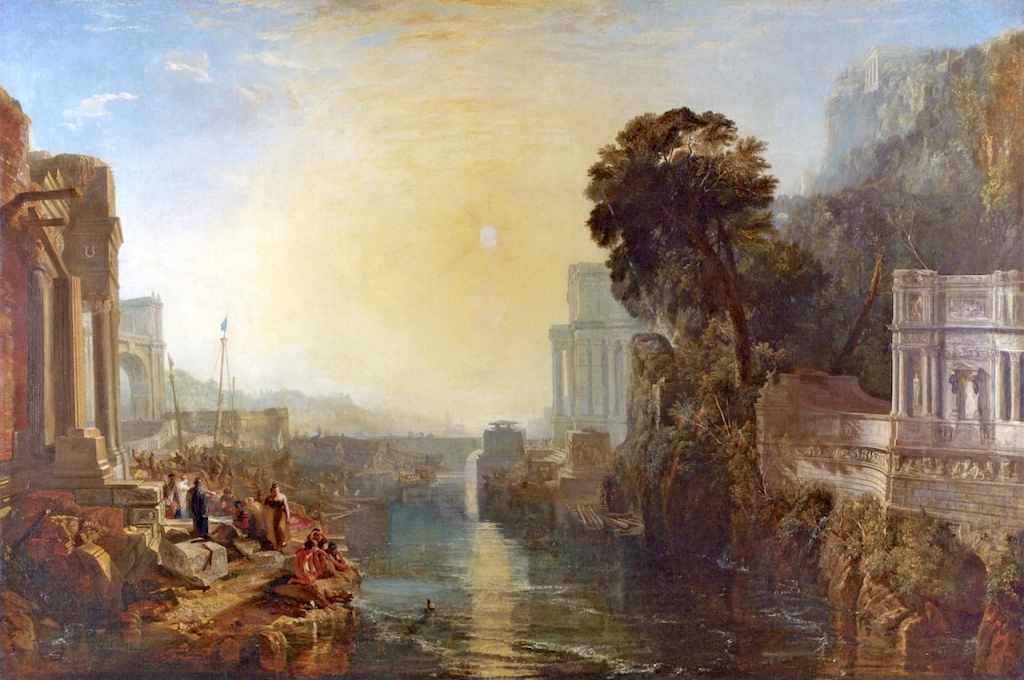The first century B.C. Roman poet Catullus expresses his frustration and torment with his lover—an older married woman—in what is his shortest and, arguably, his most famous poem:
Odi et amo. quare id faciam, fortasse requiris?
nescio, sed fieri sentio et excrucior.
I hate you and I love you.
You may be wondering how can I feel this way.
I don’t know.
But that’s how I feel.
And I. am. tortured.
(Translation from the Latin is my own.)
That last word in the poem is especially striking. In Latin excrucior is specifically referring to the Roman form of torture by crucifixion. Who among us hasn’t felt that torment of mixed emotions when it comes to lost love? Alexander Theroux writes an erudite, funny, and tormented novel about these two opposite, conflicting emotions: “That which produces effects within one reality creates another reality itself. I am thinking, specifically, of love and hate.” Thus begins Theroux’s novel which takes the same ideas from Catullus’s “Odi et Amo” poem and uses 700 pages and 100 chapters to come to the same conclusion: love is torment.
The first half of Darconville’s Cat is Theroux’s exploration of “Amo.” Alaric Darconville, a peculiar, young, academic devoted to writing a book about angels, falls hopelessly in love with one of his students on the first day of his college Freshman English composition class. Darconville is ruthless in his judgement of the people he encounters in a small college town in the south. He is surrounded by silly, boring, poorly educated, shallow southerners and although Isabel Rawsthorne is one of them he convinces himself that she is somehow different. Thoreaux uses literary devices which we normally associate with love to lay out the progression of Darconville’s affair—one chapter is a love letter, another is a series of heroic couplets about love. “Knowledge is often used, mistakenly, in the sense of wisdom. Of such ideas let us soon hope to be rid, for no brainsick questions, mythical intricacies, or the froth of human wit can probe love—you cannot explain it. You point to it with a question exactly when it hasn’t an answer for you,” Darconville writes to a fellow academic about love. He continues, “Love, in any case, means union and what is not union is not love. You will either build a bridge or build a wall. In building a wall you remain the despicable crunchfist you always were, interested in neither projection nor equation but only in acquisition.”
On a quick sidenote, “crunchfist” might have stood out as a peculiar word that had to be looked up and is typical of Theroux’s wide range of vocabulary. Colluctation, concupiscence, and mendaciloquence are just a small sampling of the words he drops into his texts. And in places where he can’t quite find a word that fits he makes up his own. My knowledge of Latin and Ancient Greek helped me pick apart some of the archaic words he uses, but a good dictionary is a must if one is to attempt to read Theroux.
Like the sculptor Pygmalion, Darconville creates a vision of the perfect woman in his mind. Although she has thick thighs, isn’t very good at conversation and writes terrible English compositions for his class, he only sees her as perfection—his own Galatea without any flaws. He spends their time together taking her for romantic drives and picnics and he gives her A’s on her terrible essays. But even Darconville’s faithful cat, Spellvexit, knows that Darconville is blinded by his love for this girl: “Spellvexit, who despised philosophy, showed an utter disregard for Darconville’s neautontimoroumenotic pain and preferred to stay outside clacking his teeth at birds until all his blew over.” It’s not clear whether or not Darconville, who was previously enrolled in a seminary, is naive about Isabel or just stubbornly believes in her perfection. Theroux is a master of foreshadowing as he slowly leads us on the long decent towards hate: “Love is centrifugal, hate centripetal. Demons must hilarify as they watch while we are drawn to someone unable, or unwilling, to love us. It is easy to be cruel. One need only not love.”
The second half of Darconville’s Cat is an exploration of his attempts at hatred (his “odi”) and his torment when he sees Isabel for who she really is: young, immature, silly, incapable of loving him. Darconville accepts a position at Harvard University and moves north without Isabel who promises to marry him and join him in Cambridge once he is settled. A decrepit, ugly, misogynist eunuch who is some sort of pseudo-administrator named Dr. Crucifer tries to become Darconville’s mentor and foment his hatred not only of Isabel but also of love, women and relationships in general. Crucifer’s name itself is a nod to Catullus and the torture that Darconville suffers because of love. We get a good taste of Crucifer’s character in Chapter LXVIII entitled, “The Misogynist’s Library” which is an 8 page list of books in his library with titles like Adnil Notrub’s The Kept Woman Who Didn’t Keep Long and Waverly Root’s “Women are Intellectually Inferior.”
I say attempt at hate because, as I was happy to see, Darconville never truly embraces hate or revenge. As hard as Crucifer tries to convince Darconville to channel his hatred and ruin Isabel’s life, in the end he runs from all that ugliness. Yes, Darconville is tormented—so, so tormented. We feel that “excrucior” of Catullus as he flees to Venice and puts his energy into writing. It isn’t a happy ending for Darconville but in the end he avoids hate which is, in itself, a triumph, and heals his soul through his creative process, something to which I can especially relate.
It’s been speculated that Darconville’s Cat is autobiographical and nt the end of the novel the reader is also left with a good sense of Alexander Theroux’s own “Odi et Amo:”
Likes: big words, books, cats, fountain pens, cats, thick thighs, sarcasm, women.
Dislikes: the South, brevity, academia, weird recluses giving him bad advice, women.
Unfortunately Darconville’s Cat is out-of-print and copies are rare and expensive. I got lucky with an ex-library book at a book sale but it really ought to be reissued by a brave, small, literary press. Tough Poets Press has started to publish Theroux’s stories and Truisms. But Darconville’s Cat is even more worthy of a wider audience.













